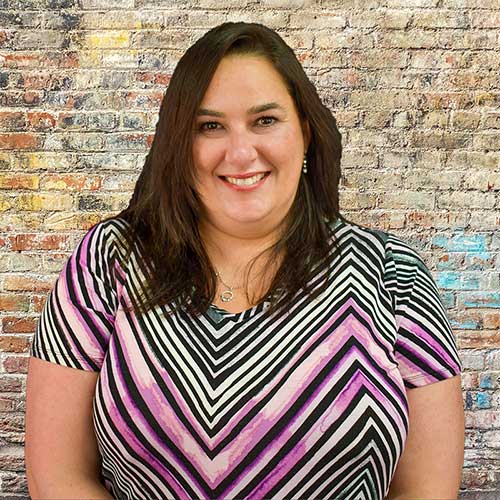Drug & Alcohol Rehab,Addiction Treatment Programs and Support
Our personalized programs are carefully designed to meet you no matter where you are in your addiction recovery journey.
Personalized Treatment
We treat each client as an individual with a unique set of issues and concerns. Our specialist clinical care team works closely with you to create a collaborative tailored recovery plan that meets you where you are in your journey whether this is your first time entering treatment, or you have been through many times before. Our wide variety of treatment modalities mean we employ the perfect treatment to make sure that we meet your every need.
Compassionate Care
We recognize your struggle and how isolating substance abuse conditions can be. We work compassionately with warmth, understanding and no judgment to uncover and treat the root causes of your addiction or mental heath issues, rather than just addressing the symptoms. Once you have conquered that first hurdle you can relax into our care assured that we can address your substance abuse issues together.

Help is just a click or a call away.
We are here 24 hours a day, 7 days a week to answer to your questions. Our team is always here to help. Please chat or call us to speak with a one of our specialists and start your recovery today.
Excel’s Recovery Addiction Program
Every recovery process is a unique journey.

Every client deserves to receive the attention they need to recover effectively, and our staff is committed to helping them on their own unique journey. Our staff are experts in their fields, and they share a passion for substance use and mental health disorder recovery. We place you at the forefront of your own journey. We believe in placing you at the center of your treatment and provide a nourishing environment for you to heal and grow.
Assessment & Intervention
The pre-treatment assessment has each client’s best interests at heart and it helps us understand some of the underlying causes of the addiction, as well as triggers that may cause a relapse if left unchecked. This assessment also helps us create an estimated timeline for expected withdrawal, and the amount and type of therapy clients should receive.
Medication Assisted Treatment
Medication-assisted treatment (MAT) refers to the use of medications in treatment while under medical supervision, in conjunction with counseling and behavioral therapies, which helps clients achieve and sustain recovery. Treatment can include antidepressants, methadone, Subutex, naltrexone implants (Vivitrol), and Antabuse.
Partial Hospitalization Program
Partial hospitalization programs (PHP) are an effective way to build a solid foundation for recovery amongst those recovering from mental health disorders as well as substance use disorders. They give clients the autonomy to continue aspects of their normal life, while also ensuring that clients receive the care that they need.
Psychiatric Consultations
To help clients in the creation of a treatment plan, they need to undergo a psychiatric consultation. This is an evaluation of all of the factors that cause a client to feel emotionally distressed. We will explore the physiological, biological, social, and medical reasons for mental health issues that a client might be suffering from.
Outpatient Program
Outpatient programs help deliver a multifaceted, bespoke approach to ongoing recovery treatment options designed with the client in mind. Outpatient programs help people maintain their recovery in shorter, regular sessions, often one or two hours, once or twice a week, which can be scheduled to align with time off from work or school.
Continuing Care
Continuing care, also referred to as aftercare, is any ongoing care received after a rehabilitation program is completed. At Excel we are committed to being with you for your entire journey. Some of the most common types of continuing care are 12 step programs, outpatient care, sober living facilities, group therapy sessions, and counseling.

Proudly healing our community in New Jersey
Drug overdose is the leading cause of accidental death in New Jersey, which is positioned between two of the main areas on the East Coast of the United States with the highest drug consumption. This has resulted in areas like Passaic, Essex, Union, Morris, Bergen, and Camden Counties becoming overrun with illicit drugs and many of its citizens facing substance use disorders and addiction. At the Excel Center we are doing our part to help remedy it.
Excel Recovery Stories

Life Saving Help

Trish R.
Philadelphia, PA

Journey To Recovery

Terry S.
Albany, NY

The Gift Of Life

Meghan B.
Rochester, NY

Sticking With It

Brian R.
Baltimore, MD
The Excel Center in New Jersey prides itself on providing highly personalized care and tailored recovery programs for our clients.
Substance Abuse Treatment
Excel offers help to people with addictions for the following substances:
To properly assess what a client requires from a treatment plan, they need to undergo a psychiatric consultation. This is an evaluation of all of the factors that cause a client to feel emotionally distressed. We will explore the physiological, biological, social, and medical reasons for mental health issues that a client might be suffering from.
The pre-treatment assessment that our clients undergo has their best interests at heart. To effectively treat a substance use disorder, we need to understand some of the underlying causes of the addiction and triggers that may cause a relapse. Our clients’ health is our number one priority. Each question we ask is designed to help our clients during the recovery process. The assessment is also necessary before we can provide any sort of medication to assist the withdrawal process. We will also outline a timeline for expected withdrawal, and the amount and type of therapy clients should receive.
Partial hospitalization programs are common amongst those recovering from mental health disorders and substance use disorders. They give clients the autonomy to continue aspects of their normal life while also ensuring that they receive the care they need. During a partial hospitalization program, also known as a PHP, clients reside at home and commute to a care facility seven days a week. Clients will most commonly attend a partial hospitalization program for about six hours a day, six days a week.
Drug testing is a measure taken to ensure sobriety or the discontinued use of particular substances. There are various methods for drug testing, all with the same goal of detecting substances within a person’s system. We test for drugs as part of the assessment and screening process, but it is also an important aspect of aftercare. Catching relapse early can be a major contributing factor to resetting the rehabilitation process. The longer someone recovering from substance use disorder continues taking substances in secret, the more severe their problem will become. Drug testing allows them to be held accountable to their goals and can be a driving psychological factor for staying clean.
Outpatient programs help deliver a multifaceted, bespoke approach to ongoing recovery treatment options designed with the client in mind. Our outpatient programs are more flexible than the intensive outpatient care programs as the clients at this stage have usually been in previous treatment where they have made progress. Outpatient programs are designed to help people maintain their recovery and usually take place once a week, typically for one-hour sessions, which can be scheduled to align with clients’ free time.
Intensive outpatient care programs are designed to assist with the transition from recovery to the return to normal life. Clients who require a structured treatment plan to overcome addiction may find the intensive outpatient programs’ integrative approach very helpful. Intensive outpatient care programs are designed to allow individuals to receive intensive outpatient treatment while minimizing disruption in their lives.
Most often provided by a psychologist, clinical social worker, or licensed therapist, family therapy aims to serve as a helpful guide in resolving conflict and improving overall communication within families. During this process, families are encouraged to be honest discussing issues positively and in turn empathizing with one another. Family therapy may be recommended due to conflict and communication issues within a family.
Medication-assisted treatment refers to the use of medications in treatment, in conjunction with counseling and behavioral therapies, which helps clients achieve and sustain recovery. MAT is often used to treat addictions to opioids, such as heroin and prescription pills like oxycodone. The medications prescribed during MAT vary depending on the type of substance abuse disorder in question, the severity of the addiction, and the client’s mental health condition. Treatment can include antidepressants, methadone, Subutex, naltrexone implants (Vivitrol), and Antabuse.
In a rehabilitation setting, telehealth can be beneficial, and prove to be an excellent alternative to in-person meetings for those with a busy schedule, for anyone worried about discretion, and those suffering from anxiety who would be more comfortable at home.
Rehabilitation is a complex process. For those recovering from a substance use disorder or alcohol use disorder, it can prove extremely challenging. Not only are there physical urges to revert to old habits due to the body’s dependence on substances, but psychological issues as well. Relapse is preventable.
Continuing care, also referred to as aftercare, is any ongoing care received after a rehabilitation program is completed. Some of the most common types of continuing care are; 12 step programs, outpatient care, sober living facilities, and counseling.
OUR RECOVERY COMMUNITY
At Excel Center, we know that we are stronger together. Our clients are given all of the tools and a compassionate environment for a successful long-term recovery. Your new life begins with us, and we want you to live it!
Why Choose Excel Treatment Center?
The Excel Team is comprised of highly skilled licensed therapists, outstanding Medical Providers that are in the forefront of addiction treatment, and caring and compassionate support staff. Our treatment professionals are deeply committed with more than 75 years of combined experience in treating addiction and teaching the life-skills that break the addiction cycle. Our ancillary support staff allow our clients to experience alternative therapies including Yoga, Reiki, Art Therapy, and Meditation, which allow healing of the body, mind, and spirit and promote healthy living.
The Best Clinical Team
Meg Zarnick, MSW, LCSW, LCADC, CCTP, CCS
Clinical Director
Meg Zarnick is a dual licensed clinical social worker (LCSW) and licensed clinical alcohol and drug counselor (LCADC). She has been working in the field of addictions and mental health since 2011. She received her Master’s in Social Work from Rutgers University in 2013 where she graduated with honors. Meg is dedicated to building strong therapeutic relationships with all clients. She believes being empathetic and attentive to client’s needs while setting and maintaining clear boundaries, which is important for recovery and personal growth. Meg utilizes a strength-based solution focused perspective to empower clients by incorporating CBT, DBT and MI in her practice. Meg is also a certified clinical trauma professional and trained in EMDR therapy.
The Best Clinical Team


